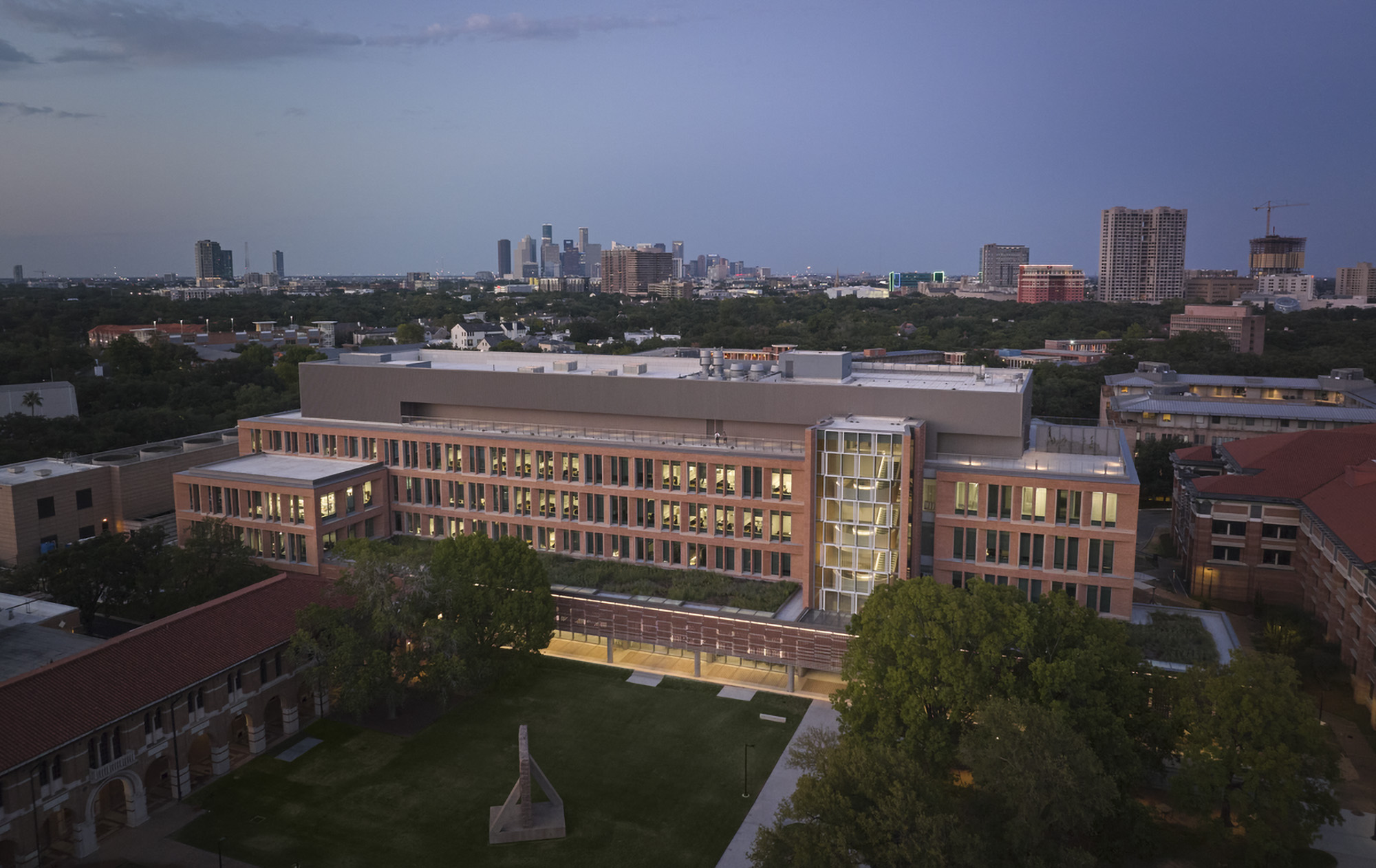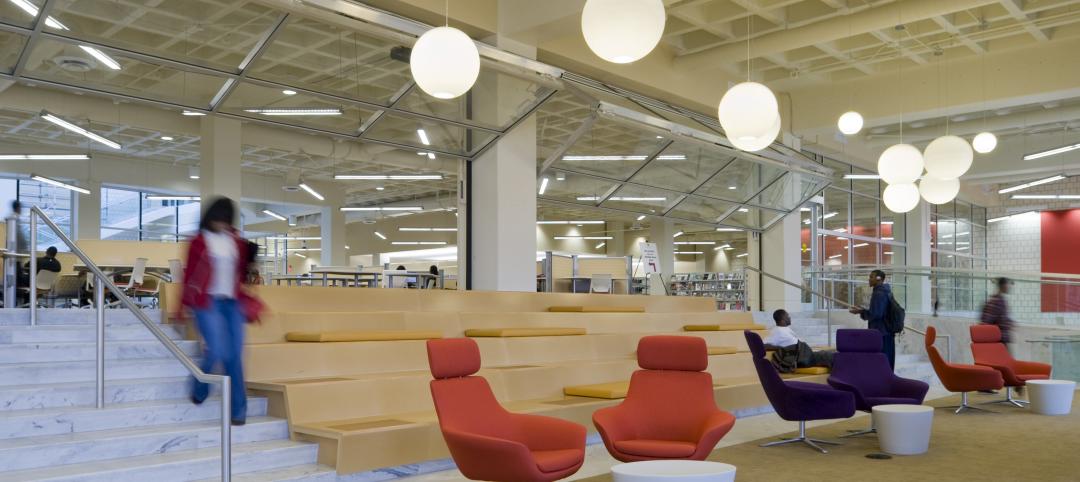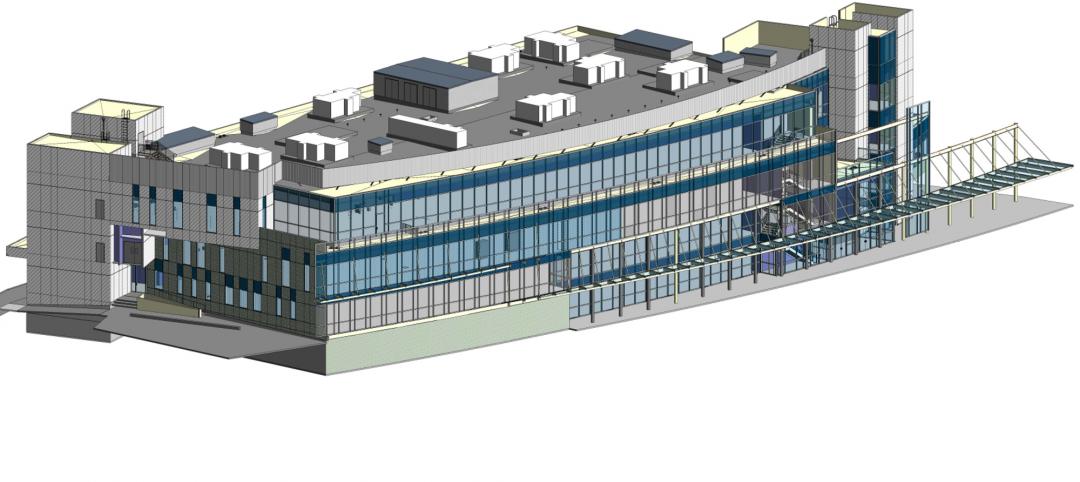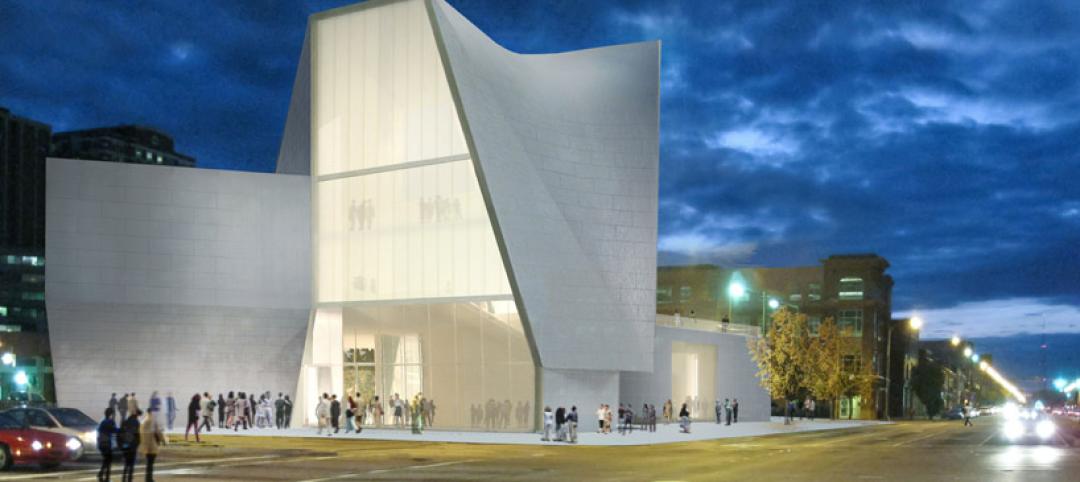Houston’s Rice University has opened the largest research facility on its core campus: the $152 million Ralph S. O’Connor Building for Engineering and Science.
Designed by Skidmore, Owings & Merrill (SOM), the 251,400-sf, five-story O’Connor Building provides students and researchers with state-of-the-art laboratories, classrooms, offices, and a cafe, in addition to multiple gathering spaces. On the top level, a multipurpose event space with an outdoor terrace offers views of the campus and the Houston skyline.
A five-story central atrium serves as an activity hub, connecting to seminar rooms, break areas, and informal gathering spaces. On the atrium’s ground level, a transparent glass façade displays this activity to the larger campus. At the building’s main entrance, brick walls and a fritted glass wall frame a cantilevered sculptural stair.

Passive and Active Design Strategies for Research Facilities
SOM’s design intends to foster collaboration in four research areas: advanced materials, quantum science and computing, urban research and innovation, and the energy transition. Promoting this interaction, the stair tower and the central hub connect a series of stepped double-height collaboration areas on different levels. Conference rooms and break areas offer more opportunities for informal learning and connection.
In line with the historic campus’s aesthetics, the O’Connor Building’s façade features brick and punched windows with angled brick pilasters and fins. Along the western edge, a covered arcade is shaded by a brick and stone veil. The arcade veil comprises alternating bands of brick and cast-stone modules, with rotated bricks in between, so light can enter between the gaps.
Both passive and active design strategies include maximizing daylight, strategic placement of the angled pilasters and vertical fins, and the use of skylights to soften the strong Texas sun. As a result of the passive design strategies, as well as an energy-efficient HVAC and lighting system, the laboratories use 50% less energy than a comparable research space.

On the Building Team:
Architect: Skidmore, Owings & Merrill
Structural engineer: IMEG Corp.
Local architect, programmer, laboratory planner: Scientia Architects
Lab consultant: Jacobs Engineering Group, Inc.
Civil engineering: Walter P Moore
Mechanical, electrical, plumbing: Wylie
Landscape: OJB Landscape Architecture
Contractor: Anslow-Bryant Construction
Related Stories
| May 9, 2012
Shepley Bulfinch given IIDA Design award for Woodruff Library?
The design challenges included creating an entry sequence to orient patrons and highlight services; establishing a sense of identity visible from the exterior; and providing a flexible extended-hours access for part of the learning commons.
| May 8, 2012
Morgan/Harbour completes three projects at Columbia Centre
Projects completed on behalf of property owner, White Oak Realty Partners, LLC, Pearlmark Realty Partners, LLC and Angelo Gordon & Co.
| May 7, 2012
2012 BUILDING TEAM AWARDS: TD Ameritrade Park
The new stadium for the College World Series in Omaha combines big-league amenities within a traditional minor league atmosphere.
| May 3, 2012
2012 BUILDING TEAM AWARDS: Rush University Medical Center
This fully integrated Building Team opted for a multi-prime contracting strategy to keep construction going on Chicago’s Rush University Medical Center, despite the economic meltdown.
| May 3, 2012
U of Michigan team looking to create highly efficient building envelope designs
The system combines the use of sensors, novel construction materials, and utility control software in an effort to create technology capable of reducing a building’s carbon footprint.
| May 2, 2012
Building Team completes two additions at UCLA
New student housing buildings are part of UCLA’s Northwest Campus Student Housing In-Fill Project.
| May 1, 2012
Construction is underway on MLK ambulatory care center in L.A.
Featuring a variety of sustainable features, the new facility is designed to achieve LEED Gold Certification.
| Apr 30, 2012
Virginia Commonwealth unveils design for Arts Institution
Institute for Contemporary Art will serve as a catalyst for exhibitions, programs, research and collaboration.
| Apr 25, 2012
J.C. Anderson selected for 50,000-sf build out at Chicago’s DePaul University
The build-out will consist of the construction of new offices, meeting rooms, video rooms and a state-of-the-art multi-tiered Trading Room.
| Apr 17, 2012
Princeton Review releases “Guide to 322 Green Colleges”
The guide profiles 322 institutions of higher education in the U.S. and Canada that demonstrate notable commitments to sustainability in their academic offerings, campus infrastructure, activities and career preparation.
















